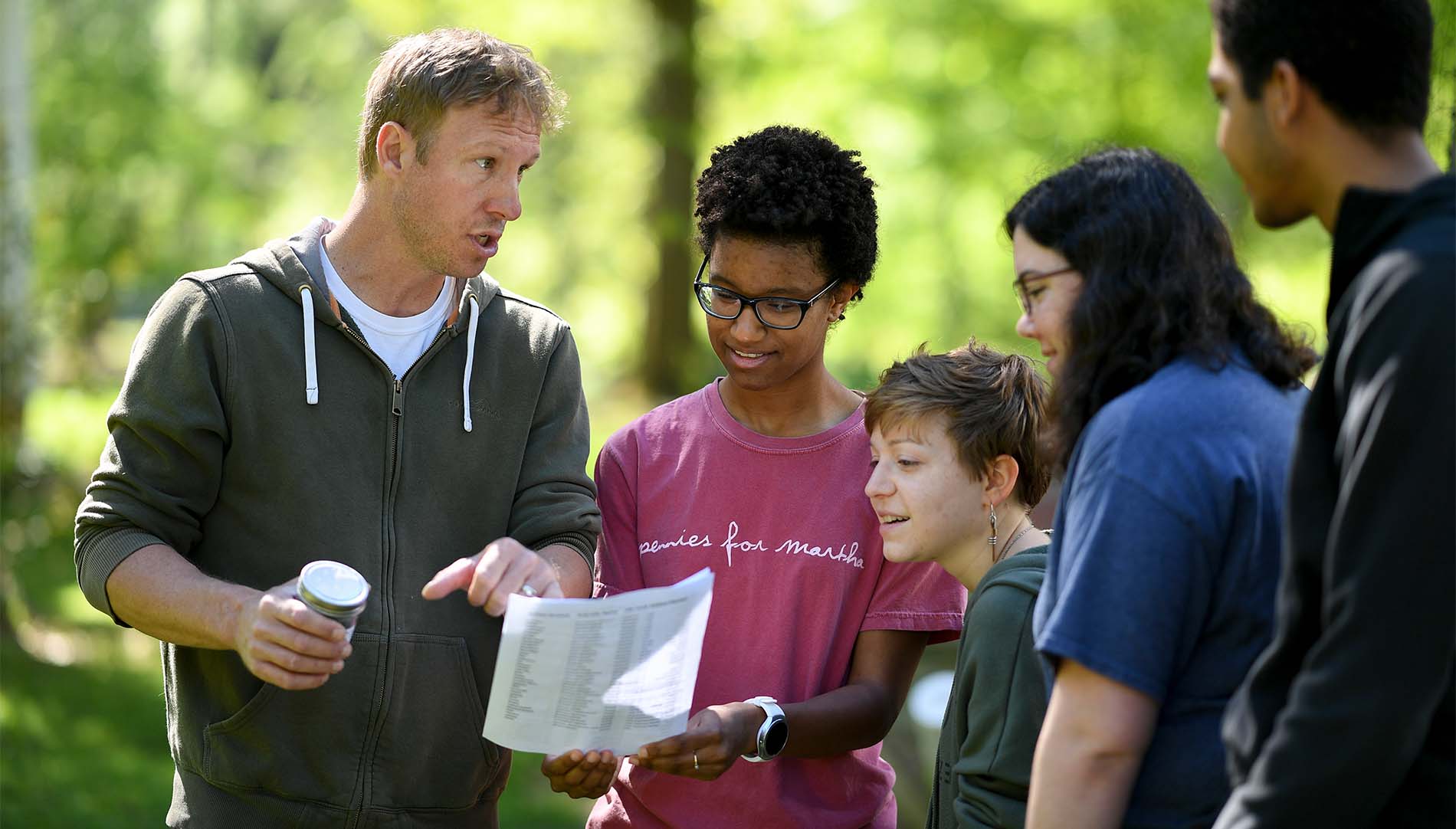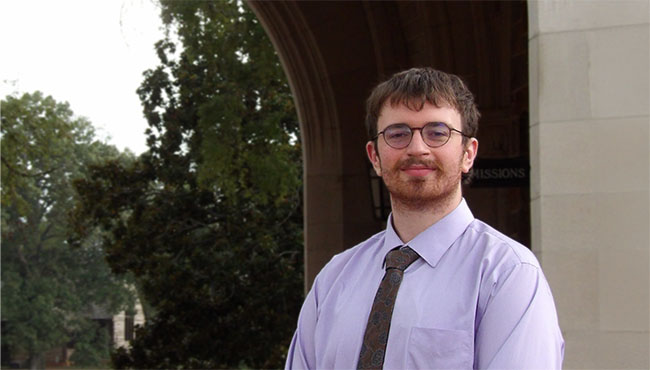In a rapidly changing economy, college students need an education that prepares them for this dynamic vocational landscape. More than ever, a liberal arts degree gives graduates an edge in the job market. Still, the term liberal arts is somewhat misunderstood outside academia. Want to learn more about whether a liberal arts degree is right for you? This resource will define what a liberal arts degree is and explain how it gives graduates an edge in the job market.
WHAT IS A LIBERAL ARTS DEGREE?
In a letter to college students, President Stephen Briggs of Berry College describes a liberal arts degree as “developing skills through which we liberate thinking.” Not to be confused with political persuasions like liberal or conservative, a liberal arts education exposes students to new worldviews and ways of thinking, Briggs argues. It makes students more mindful of the places and spaces they inhabit. In a sense, this type of education liberates the mind from previous ways of thinking.
Briggs offers a few examples of this liberated thinking. For example, the social sciences help students think about how societies organize. It also asks them to consider how we co-exist. The sciences teach students to think critically about the physical and natural world around them. They may experience a new understanding of the air they breathe or how their bodies work. Literature and art help students analyze how society makes meaning and tells stories that shape and critique culture. Moreover, these disciplines show how integrating new and unique perspectives is a powerful outcome of a liberal arts education.
HOW STUDENTS LEVERAGE LIBERAL ARTS IN REAL LIFE
Kalista Shields, a creative technologies major with a double minor in computer science and communication, believes her liberal arts degree has given her flexibility in the job market. Originally, when she discovered she was required to take a sociology course in college, she felt annoyed. She did not understand its relevance, but today she has a different perspective.
Kalista explains: “One of the most impactful classes I have taken at Berry was sociology. I was grumbling about taking the class beforehand, but I learned so much about other people and the impact my work could potentially have on others. With a well-rounded education, I can see how truly multidisciplinary engineering can be. Good engineers consider the ethical implications of their work.”
Similarly, Berry alumni Togor Nunghe ’16, a technology strategy consultant at Deloitte Consulting, describes the effect a public speaking course had on her future: “One class that impacted my ability to publicly speak was my communication course. The class required a lot of speaking in front of large groups, and with an accent, this was not something I enjoyed doing. But I had a fantastic professor who was encouraging and pushed me to dig deep. The course made me step out of my comfort zone and get comfortable with being uncomfortable. It helped me figure out how to organize my thoughts, how to speak to different audiences and how to be confident. You can take all these different advanced courses, but, at the end of the day, you still need to be able to present yourself verbally in a way that makes you memorable.”
THE VALUE OF A LIBERAL ARTS EDUCATION OVER TIME
Lynn Pasquerella, the president of the Association of American Colleges and Universities (AAC&U), put data and meaning behind these student experiences when she told Inside Higher Ed, “The critical thinking skills, adaptability and flexibility that a liberal arts education provides are more valuable than ever.”
She was responding to new research about the return on investment that liberal arts degrees held over other college degrees. According to the study, “40 years after enrollment, the return at liberal arts colleges reached $918,000, more than 25 percent higher than the median gain at all colleges.”
Not everyone agrees every profession needs a liberal arts degree. For example, a student can receive a two-year associate degree in nursing and skip the liberal arts curriculum. However, Professor and Director of the Division of Nursing at Berry College Carolyn Reilly describes why she believes the most appropriate course of nursing education is through a liberal arts track.
Reilly explains: “Nurses need to be well-rounded, and a liberal arts education provides this background. In the first years, nursing students receive the prerequisites like anatomy, physiology, nutrition, psychology and microbiology. But a liberal arts education also equips students with soft career skills that are not necessarily the focus of the other two years of concentrated nursing content.”
For example, she explains how required communication courses give nursing students confidence in their bedside manner and the ability to educate patients and families about their care. Similarly, other courses such as economics, psychology, sociology and political science hold the pieces to building critical thinkers and strong problem-solvers before students focus solely on nursing content. Reilly believes the core liberal arts curriculum sets nursing students up to be curious, lifelong learners.
Other research from the AAC&U and the National Association of Colleges and Employers (NACE) suggested employers in other fields agreed with this sentiment. In 2021, nine out of 10 employers in an AAC&U survey said that the essential learning outcomes of a “liberal education” or liberal arts degree were “somewhat important” or “very important.”
TOP SKILLS OF CAREER-READY LIBERAL ARTS GRADUATES
NACE also outlined the top skills employers defined as important for career readiness. Here’s the list, plus reasons why liberal arts graduates possess these characteristics.
Clear, effective communication – The exchange of clear, effective communication is a powerful skill to bring to any job. Being a strong communicator requires the ability to share information, ideas, facts and perspectives with any audience and in any format. Strong communicators are also versed in the language of their field and have the ability to produce clear, accessible reports, documents, emails, conversations, presentations, etc., for a variety of audiences. High-quality communicators are also lifelong learners and adaptable, recognizing that even the way businesses communicate is frequently changing in this digital age.
Liberal arts graduates are likely to possess this characteristic because they must take courses in written and oral communication as well as pass writing-intensive, major-specific courses. Liberal arts students have experience writing and speaking about content related to their major as well as content outside their field.
Critical thinking – Memorizing facts and following instructions are useful skills. However, an employee who can go beyond these fundamental abilities is an asset in any role. Employers argue they need more people in the workforce 1) who can identify the needs of a situation and 2) who can think and respond to that need based on the situational context and information.
Liberal arts graduates are likely to possess this characteristic because the core curriculum requires higher-order thinking skills. They are asked not only to study a variety of subjects, but also to compare, apply and synthesize their knowledge. Having opportunities to practice seeing the world from other perspectives helps students recognize a situational context and respond to specific problems or needs.
Teamwork – Employers value graduates who can establish and nurture collaborative relationships. It is important in most careers to work effectively toward common goals while appreciating diverse viewpoints and shared responsibilities. It is also important for graduates to have a good sense of how they fit into team chemistry.
Liberal arts graduates are likely to possess this characteristic because of many curricular opportunities to practice seeing beyond their own perspectives. Graduates should be able to accurately assess the skills they bring to team chemistry and balance the work and responsibility with others.
Equity and inclusion – Employers value graduates who display the awareness, attitude, knowledge and skills required to equitably engage and include people from different local and global cultures. This mindset is taught and requires exposure to different worldviews and ways of thinking. To engage in anti-racist practices that actively challenge systems, structures and policies of racism, graduates need a clear understanding of them and how they impact their areas of expertise.
Liberal arts graduates are likely to possess this characteristic because, as President Briggs notes, liberal arts colleges are focused on “refreshing student experiences in the world and making students more mindful of the places and spaces they inhabit.” Because students are required to engage with different people, cultures and perspectives before they leave college, they are prepared to value equity and inclusion.
Professionalism – Football and tennis are both sports, and yet they each have a unique set of rules and required attire to compete. In a similar manner, work environments often have certain expectations that are a part of that specific industry culture. Understanding and responding to the workplace are important skills. Employers want to hire graduates who respect and understand their work culture, environment and community. They also desire strong, efficient work habits within the workplace.
Liberal arts graduates are likely to possess this characteristic because, as mentioned above, they are taught to consider the context and adapt appropriately.
Digital literacy – There are very few jobs in the world that do not require a basic understanding and use of technology. In today’s market, the ability to use devices, software and apps safely and with confidence is the foundation of digital literacy. It is also necessary for those headed into the job market to use technologies ethically. Even the ability to learn and adapt to new devices and software is invaluable. Digital literacy is also a characteristic that overlaps with communication and teamwork, as technology is often a vehicle for accomplishing group work.
Liberal arts graduates are likely to possess this characteristic because digital literacy is also highly valued in the liberal arts curriculum. Students are sometimes asked to integrate or reflect on their liberal arts experience using technology.
Self-awareness about career development – Employers today value graduates who take a proactive approach to their career trajectory. They look for employees who want to grow and learn those while possessing an awareness of their strengths and weaknesses. Employees who are interested in personal and professional learning and who work to build relationships within and outside their organization are highly desired and successful.
Liberal arts graduates are likely to possess this characteristic because of the way their core courses require them to dabble in different areas of study. Not only are liberal arts students receiving a well-rounded education, but they are also encouraged to assess whether they are in the right field for their future based on their interest in and experience with other courses outside their major.
Leadership – Employers also value employees who can recognize and put to use the strengths of their coworkers and teams to meet organizational goals. Leaders who possess this ability often have strong interpersonal skills referred to as soft skills such as strong communication, empathy, an ability to listen and high emotional intelligence.
Liberal arts graduates are likely to possess this characteristic because of their required core courses. Being able to walk in the shoes of another person or to “see their side” is an acquired skill, and having more exposure to seeing and understanding different perspectives is a powerful part of studying the social sciences or humanities.
AAC&U states that it values each of these qualities, “Employers from every background and industry are seeking employees with a very particular type of postsecondary education - one in which students engage in forms of inquiry that train the intellect through a focus on real-world problems that draw the learner into relationship with others.”
Looking to invest in a college education with high employability? Consider the advantages of a liberal arts degree!



